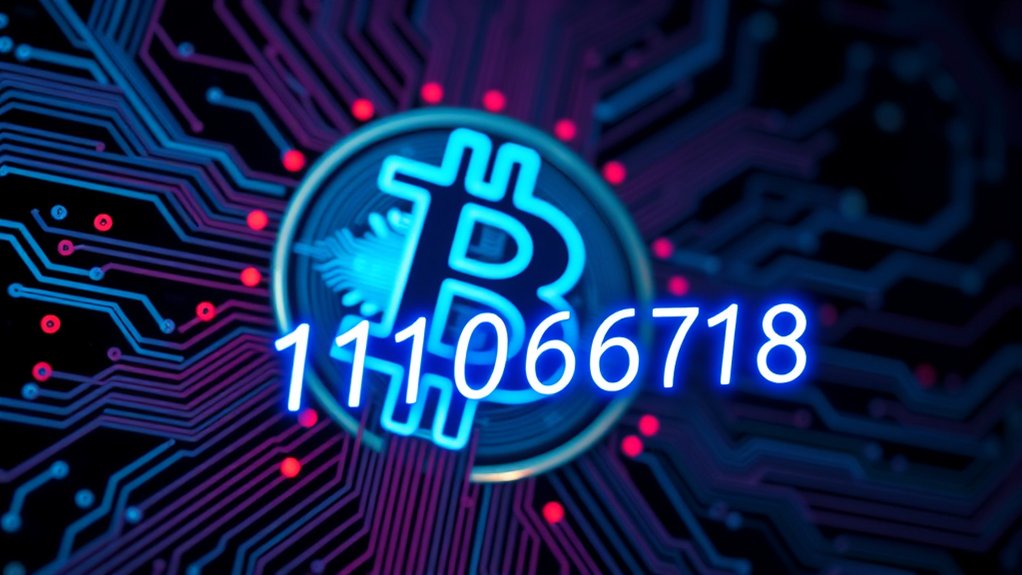A Bitcoin address is like a digital home for your money, resembling an email but for Bitcoin. It’s a unique alphanumeric code created from cryptographic keys. You start with a secret private key, then derive a public key, and finally, voilà—a Bitcoin address! There are different types, and they change with each transaction for privacy’s sake. But watch out! If you mess up an address, tough luck. Curious about how it all ties together? Keep going.

In the wild world of cryptocurrency, a Bitcoin address is like your digital home address—only it’s a string of letters and numbers that looks like it was generated by a hyperactive robot. This unique alphanumeric string serves as a virtual location for all your Bitcoin transactions. Think of it as your bank account number, but way cooler and infinitely more cryptic. It’s derived from a public key, which is part of a fancy asymmetric key pair. And yes, it’s as complicated as it sounds.
You can compare a Bitcoin address to an email address. Just like you wouldn’t send a letter to someone without their email, you can’t send Bitcoin without knowing the address. But here’s the kicker: these addresses aren’t permanent. They change with each transaction. So, if you thought you could just memorize one, think again.
The generation of a Bitcoin address starts with creating a private key. That’s the secret sauce, folks. From there, a public key is derived, and then it’s hashed and encoded into the address. They use Base58 encoding, which is just a fancy way of saying they’ve cut out the confusing characters. Most addresses are between 26 and 35 characters long, crammed with letters and numbers—no “O,” “I,” “l,” or “0,” because why make it easy? Errors in bitcoin addresses are irreversible; verification is necessary to ensure funds are sent and received correctly. A crypto wallet is essential for securely managing these addresses and the associated private keys.
Now, there are different types of Bitcoin addresses. P2PKH, P2SH, and Bech32 (that last one’s for SegWit transactions) are just a few. Each type has its own quirks and efficiencies, like the hipster of the Bitcoin world. Understanding wallet types aids in selecting the right option for users.
Security is another big deal. Public keys are shared to receive funds, but private keys? You keep them under lock and key. They help maintain anonymity and security, popping out change addresses to keep things under wraps.
In this blockchain maze, verification processes guarantee everything’s on the up and up. So, whether you’re sending or receiving, a Bitcoin address is your lifeline in this digital gold rush.
Frequently Asked Questions
Can I Change My Bitcoin Address After Creating It?
Sure, a person can generate new Bitcoin addresses anytime.
However, changing an address after it’s been created? Not exactly a thing. Once it’s out there, it’s out there—like that embarrassing photo from high school.
Reusing addresses is possible, but it’s not a privacy win. Many wallets automatically whip up fresh addresses for each transaction, keeping things cozy.
How Long Does a Bitcoin Address Remain Valid?
A Bitcoin address stays valid as long as the private key is still kicking. No expiration date—how convenient! It can be used over and over, but that’s not recommended.
Reusing it is like wearing the same shirt every day; it’s just not a good look. Privacy? Forget about it. The moment you start using the same address, you wave goodbye to anonymity.
Are Bitcoin Addresses Case-Sensitive?
Bitcoin addresses? Oh, they’re a mixed bag. Some are case-sensitive, like those old-school P2PKH types. Slip up a letter? Good luck getting your funds back. That’s right, you might as well set them on fire.
On the flip side, newer bech32 addresses don’t care about case. They’re like the chill friends at a party. Just remember: one tiny mistake in the old ones, and your money’s gone forever. Yikes!
Can I Receive Bitcoin Without a Wallet?
Sure, you can receive Bitcoin without a wallet. Sounds great, right?
But hold up—it’s not that simple. You can generate an address, but good luck managing your private key! Without a wallet, it’s like trying to keep cash under your mattress. Good luck with that.
You’ll have trouble confirming transactions and enforcing any security. So, while you can technically do it, think twice before diving in. It’s messy.
What Happens if I Lose My Bitcoin Address?
If someone loses their Bitcoin address, it’s like throwing a treasure map into the ocean. Gone. Poof.
Without that address, the Bitcoin tied to it is lost forever. No magic recovery spells here.
Sure, it could boost scarcity, but who cares when you can’t access your stash? It’s a harsh lesson in digital ownership.





